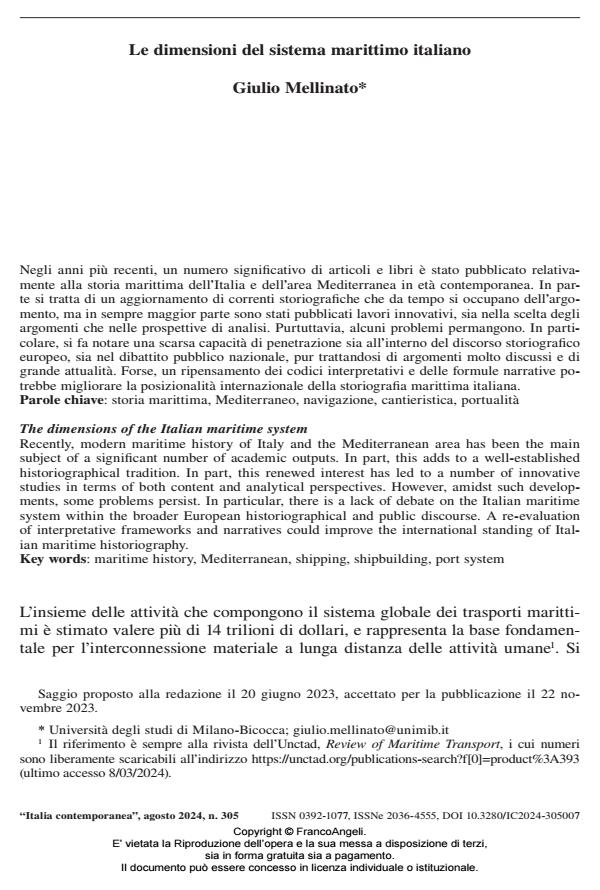The dimensions of the Italian maritime system
Journal title ITALIA CONTEMPORANEA
Author/s Giulio Mellinato
Publishing Year 2024 Issue 2024/305
Language Italian Pages 19 P. 155-173 File size 179 KB
DOI 10.3280/IC2024-305007
DOI is like a bar code for intellectual property: to have more infomation
click here
Below, you can see the article first page
If you want to buy this article in PDF format, you can do it, following the instructions to buy download credits

FrancoAngeli is member of Publishers International Linking Association, Inc (PILA), a not-for-profit association which run the CrossRef service enabling links to and from online scholarly content.
Recently, modern maritime history of Italy and the Mediterranean area has been the main subject of a signifi cant number of academic outputs. In part, this adds to a well-established historiographical tradition. In part, this renewed interest has led to a number of innovative studies in terms of both content and analytical perspectives. However, amidst such developments, some problems persist. In particular, there is a lack of debate on the Italian maritime system within the broader European historiographical and public discourse. A re-evaluation of interpretative frameworks and narratives could improve the international standing of Italian maritime historiography.
Keywords: maritime history, Mediterranean, shipping, shipbuilding, port system
Giulio Mellinato, Le dimensioni del sistema marittimo italiano in "ITALIA CONTEMPORANEA" 305/2024, pp 155-173, DOI: 10.3280/IC2024-305007